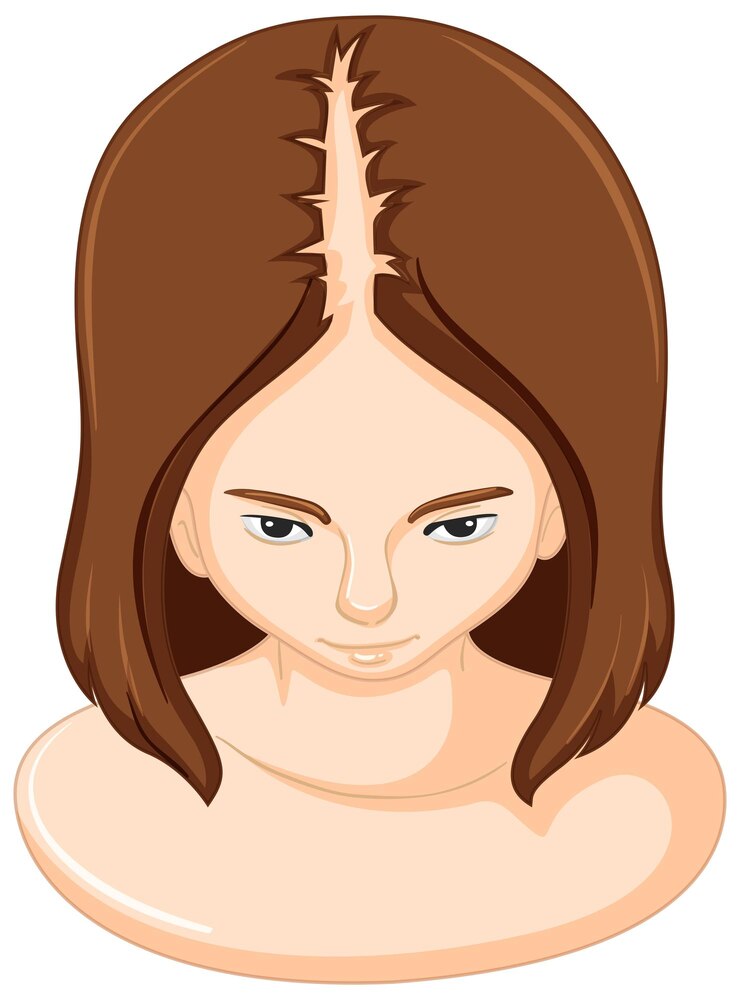Alopecia Areata
Our Services
Book an Appointment

Expert Alopecia Areata Care in Noida
Alopecia Areata is characterized by patchy hair loss due to an autoimmune response where the body's defenses mistakenly target hair follicles. This can lead to sudden hair loss on the scalp and other areas. While the precise cause remains under investigation, treatments focus on encouraging hair regrowth and managing the condition effectively.
At the Noida clinic of Dr. Rachna Singh, a leading dermatologist, individuals experiencing Alopecia Areata can find advanced and personalized treatment strategies. Combining cutting-edge dermatological techniques with a patient-centric approach, Dr. Singh and her team offer tailored therapies. These may include topical solutions, targeted injections, and other innovative methods designed to stimulate hair regeneration and control the symptoms of Alopecia Areata. The clinic is committed to providing comprehensive care within a supportive and understanding environment.

Your Trusted Alopecia Specialist in Noida
Seeking a specialist for Alopecia Areata ensures accurate diagnosis and a treatment plan specifically designed for your needs. These experts are proficient in the latest therapies aimed at promoting hair regrowth and managing the various manifestations of this condition, all while providing empathetic and thorough care.
Dr. Rachna Singh, a distinguished dermatologist in Noida, is adept at diagnosing and treating Alopecia Areata. Her approach involves a detailed evaluation and the application of contemporary, evidence-based treatments focused on achieving hair regrowth and effectively managing symptoms. Dr. Singh is dedicated to delivering holistic care, addressing both the physical and emotional aspects of hair loss.

Understanding Alopecia Areata Treatment Costs in Noida
The investment in Alopecia Areata treatment at Dr. Rachna Singh's clinic in Noida is tailored to the individual's specific condition and the chosen treatment approach. For instance, the cost of intralesional corticosteroid injections, a common therapy, typically ranges from approximately ₹ 5,000 to ₹ 7,000 per session. Dr. Singh emphasizes personalized treatment strategies, ensuring that each patient receives the most appropriate care based on their unique requirements. This commitment to individualized plans, coupled with her expertise in managing Alopecia Areata, underscores her dedication to providing high-quality and compassionate care. This advanced technique involves the precise administration of corticosteroid injections into the affected scalp areas to encourage hair growth and reduce inflammation.
Key Factors Contributing to Alopecia Areata
Autoimmune Response: The primary factor is the immune system mistakenly attacking healthy hair follicles.
Genetic Predisposition: A family history of Alopecia Areata may increase an individual's susceptibility.
Environmental Influences: Factors like significant stress or viral infections might act as triggers in some individuals.
Hormonal Fluctuations: Changes in hormone levels could potentially play a role in the onset of Alopecia Areata.
Co-existing Autoimmune Conditions: Individuals with other autoimmune disorders may have a higher risk of developing Alopecia Areata.
Recognizing Alopecia Areata: Common Symptoms
Be aware of these 5 potential indicators of Alopecia Areata:
Localized Bald Patches: The appearance of distinct, often circular, areas of hair loss on the scalp or other body parts, typically without pain.
Smooth, Hairless Areas: The development of bald patches where the skin is smooth and lacks any signs of inflammation or scaling.
"Exclamation Point" Hairs: The presence of short, tapered hairs at the edges of bald spots, which can indicate ongoing hair loss.
Nail Abnormalities: Changes in fingernails or toenails, such as pitting, the formation of ridges, or increased brittleness, may occur.
Rapid Hair Loss Onset: The sudden and often unexpected appearance of hair loss within a relatively short period.
Personalized Treatment Strategies for Alopecia Areata
Topical Corticosteroids: Creams or solutions applied directly to the scalp to reduce local inflammation and encourage hair growth.
Intralesional Corticosteroid Injections: Direct injections into the bald patches to suppress the immune response at the follicle level and promote regrowth.
Systemic Medications: Oral corticosteroids or other medications may be prescribed for more extensive or severe cases.
Immunomodulatory Therapies: Treatments aimed at modifying the immune system's activity, such as topical immunotherapy.
Light-Based Treatments: Exposure to specific wavelengths of ultraviolet light to potentially stimulate hair follicle activity.
Hair Restoration Surgery: In select, stable cases, hair transplantation can offer a long-term solution by moving healthy hair follicles to the affected areas.
Review Form

Dr. Rachna Singh is a Dermatologist and Cosmetologist with 16 years of experience in clinical dermatology, hydra facials, pigmentation treatments, mole & wart removal. She practices at Dermanation Clinic, Sector 75, Noida.
- Home |
- About Us |
- Treatment |
- Contact Us |
Shop no - 18A first floor, spectrum mall, Dermanation clinic, Sector 75, Noida, Uttar Pradesh 201304
Mobile No: +91 093194 54789
Email: rachansingh8@gmail.com
Website: www.dermanation.in


